[Original by Moeka SANO, 2023 Public Relations Intern (May 25, 2023); Translated by A. Turner/K. Takemura]
Have you ever been curious about the different career paths JVC staff followed before they landed their position as an employee at an NGO?
It’s my hope that this interview will come as some benefit to those looking to have a career in international cooperation in the future!
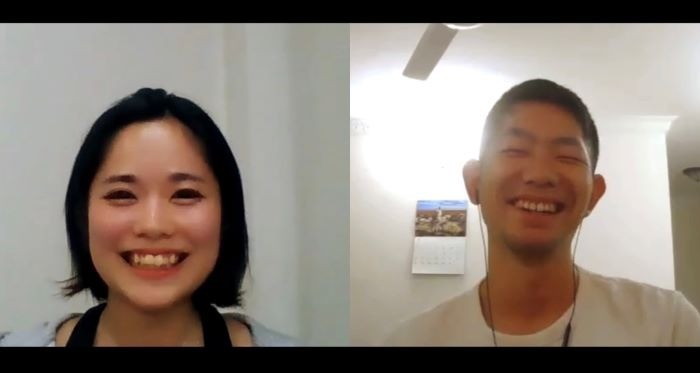
A picture of our interview
What kind of person is Imanaka?
He has been one of the local staff at the JVC Sudan office since 2018. He majored in Arabic at university, at which point he went on exchange to Yemen for a year. After graduating, he worked at a heavy industry company, later received qualifications as a Japanese language teacher, and worked at a translating house while teaching Japanese. He began working for JVC after having been based in Egypt.
Now I’d like to present a portion of the interview I held with the friendly conversationalist, Imanaka.
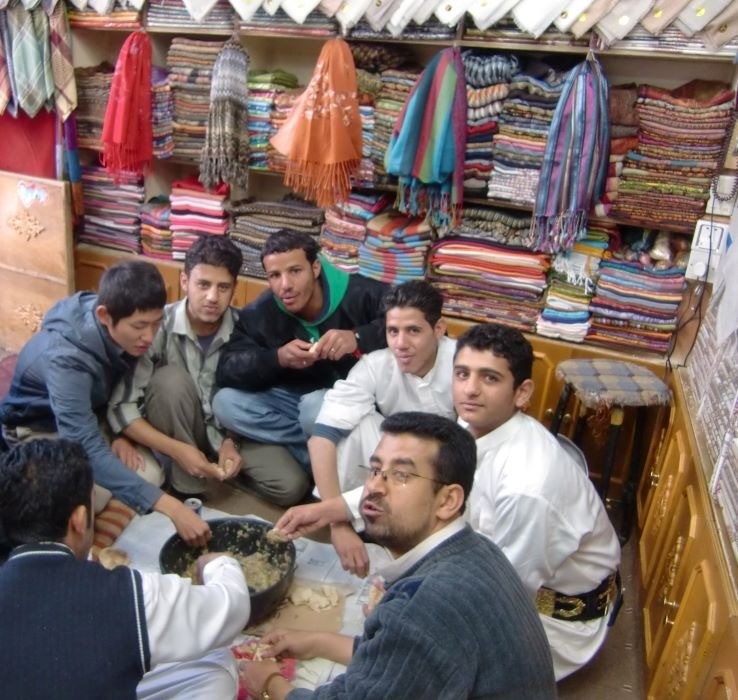
Sharing a meal with merchants in Yemen’s old quarter
Q: How would you describe yourself in one word?
It’s a bit presumptuous to describe myself a certain way, but I would say “kind”.
I agree! (Sano)
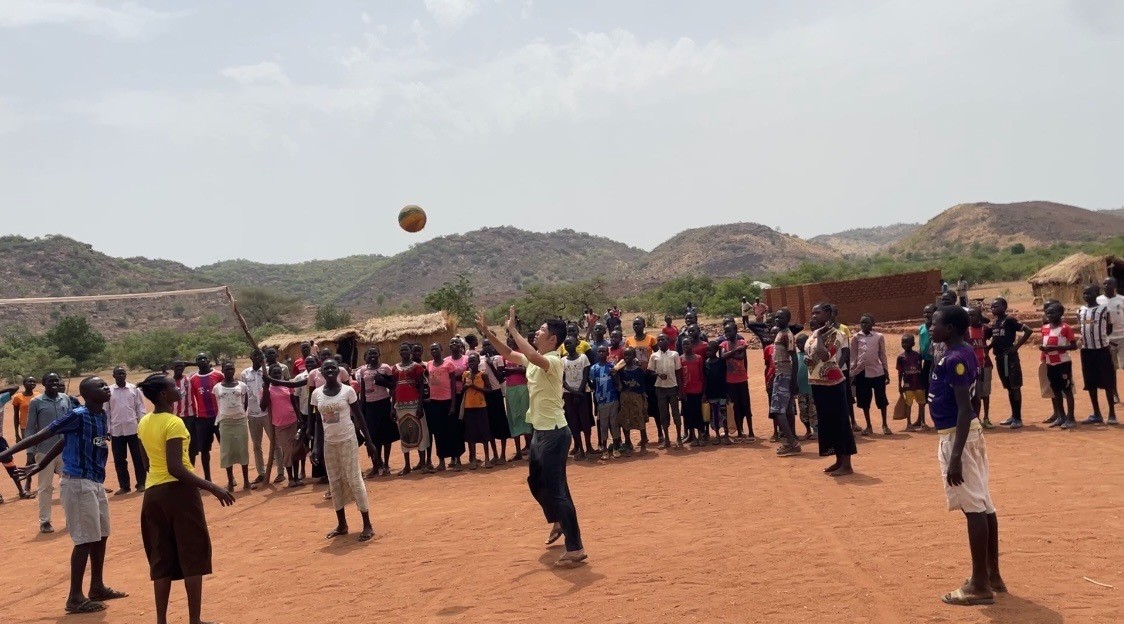
Volleyball is even popular at the supplementary school JVC supports!
Q: What are your hobbies?
I enjoy volleyball. I was in the volleyball club in high school and university, and I still practice and play matches with the Sudanese people and other foreigners twice a week.
Many Sudanese prefer soccer, but volleyball is also popular. There are some pretty athletic people, they’re really good!
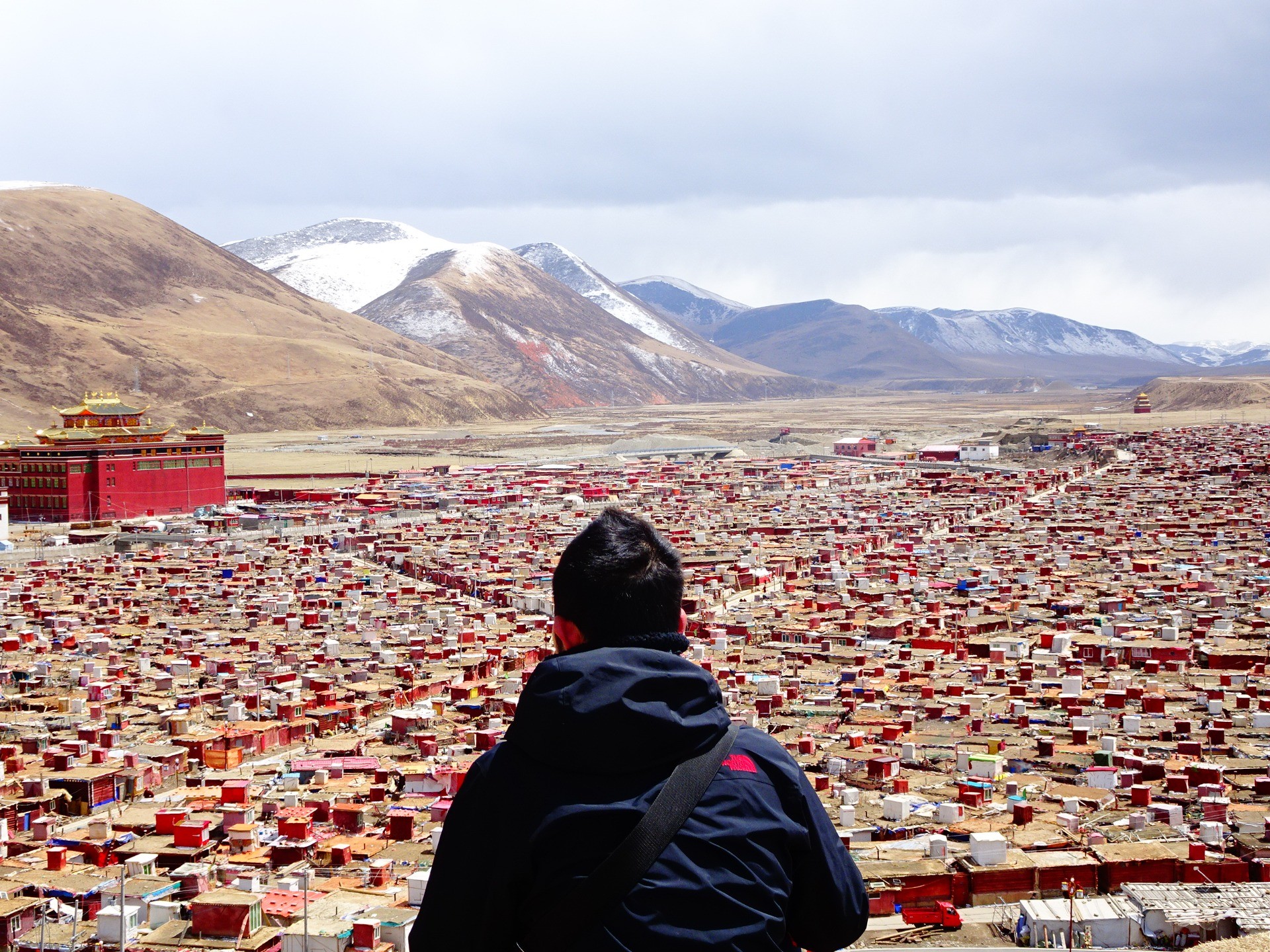
Imanaka surprised by the devotion of the town of female Buddhist monks in East Tibet, 4000 m elevation.
Q: What made you decide to learn Arabic?
I knew I wanted to study a different language, and I thought, while I’m at it, I’ll learn one that’s not too popular and doesn’t use the English alphabet.
When I was studying for my university entrance exams, English documentaries were the thing I turned to the most for listening practice, and the documentaries exploring the Arab world were definitely another source of inspiration for me. I initially watched them for English practice, but I was intrigued by the mysterious characters in Arabic text and, rather than feeling put off by the image of terrorism and war that is associated with the region, I was more interested in what kind of lives the people lead, what they think, and learning about Islam.
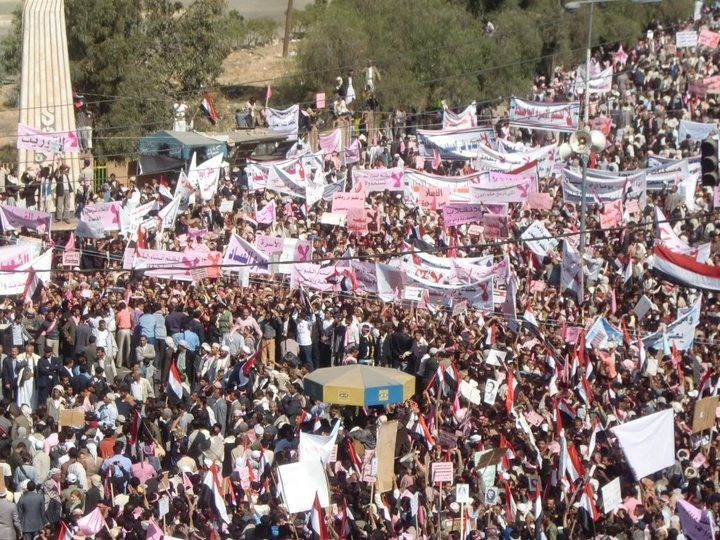
The Arab Spring began while Imanaka was on exchange in Yemen.
Q: What is your favourite saying?
“You only live once.”
You only live once, so I really believe that if there’s anything you want to do, anything you have the slightest amount of interest in, you should step out of your comfort zone and give it a go.
If there’s an event you’re interested in, there’s always the chance that you don’t end up enjoying it, but there’s also the chance that you’ll meet people you get along really well with. You never know what might happen, so I’ve always been a firm believer in trying new things.
Q: You went from working at a heavy industry company to working as a Japanese teacher and translator! What prompted the big change?
The reason why I worked in heavy industry in the first place is because of my exchange to Yemen. The Arab Spring began while I was there, and in the midst of social disorder, critical infrastructure, beginning with electricity, began being cut off and destroyed. I saw people facing unemployment and poverty firsthand. This inspired me to find work supporting other countries’ infrastructure development.
I worked in the warranty department of a thermal power generation business for three and a half years. I felt that establishing power generation facilities and supporting power supply networks all around the world was really meaningful work, and I had plenty of opportunities to put to use the Arabic I had learned in university with our customers from the Middle East. Though it seems obvious looking back, my work only ever involved sales, and I never had the opportunity to see whether our work was actually doing any good in the countries receiving the energy themselves. I began to want to work more closely to those I was meant to be helping.
The company where I worked had high industrial technology, so I wanted a job that would give me the opportunity to learn new skills, while also personally knowing the difficulty yet fun of learning a new language and loving teaching, so I decided to become a Japanese teacher. I worked at a language school in Tokyo teaching foreigners Japanese, which was a really precious experience for me. When I lived in Egypt working in translation, I continued teaching Japanese after work.
Let’s hear more about his current work in JVC!
Q: What kind of activities are you involved in in Sudan?
I usually work at the JVC office in the Sudanese capital, Khartoum.
We have activities in the following areas:
・Kadugli, the government-administrated capital of the state of South Kordofan
・The area of South Kordofan under rebel control
・The refugee camp in Yida, South Sudan
In Kadugli, we support the management of a supplementary school offering education to the children unable to go to school due to conflict or their family’s financial circumstances.
We hold classes for six months of the year, and, after classes are finished, work with teachers in the community and local authorities to ensure that the students can return to regular schooling by additionally educating the children’s guardians to remove the barriers to their enrollment.
The area of South Kordofan under rebel control is the area that is hardest to deliver aid to and has the greatest need for water supply support.
Wells in the region have been destroyed in the conflict or have become blocked in the time that evacuees have been away from their homes, making it incredibly difficult to retrieve clean water. Another of our activities is to perform repairs and maintenance on the wells in the region.
The refugee camp in Yida, South Sudan, is home to displaced persons from Sudan who have crossed international borders to escape the ongoing conflict.
We support vulnerable children at the camp who have been unable to receive education for a number of reasons, whether that be because their father perished in the conflict, their family has become separated, or maybe their mother is sick.
We provide tuition support, stationary, hygienic products and meals, as well as offer sports, English and gardening classes on their days off from school. We endeavour to give the kids a place to spend time as kids are supposed to.
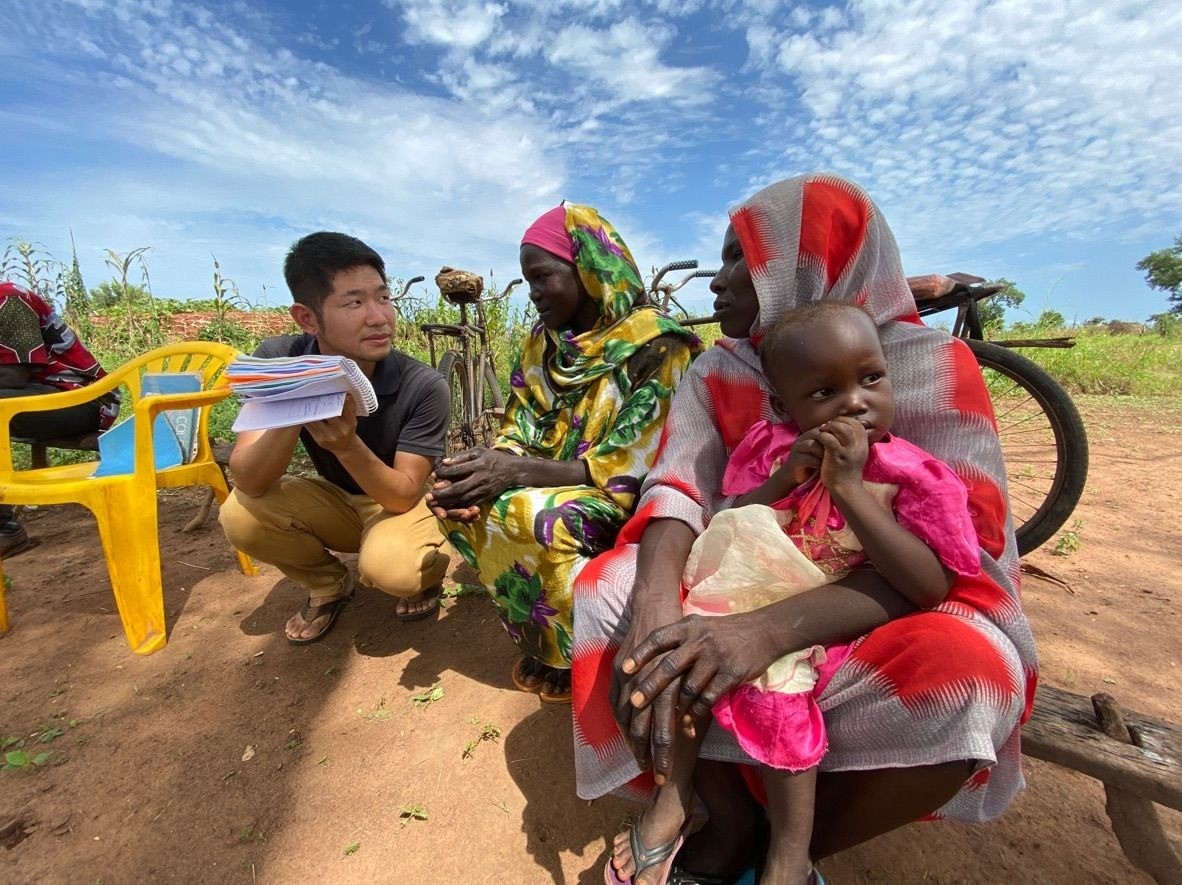
Imanaka speaking to the caregivers at the kindergarten in the Yida refugee camp
Q: What have you found difficult about running these activities?
That I can do nothing to stop the degradation of public order.
No matter how many settlements and wells we build, no matter what supplementary schools and training institutions we run, as long as the conflict continues, the infrastructure we built will continue to be destroyed, more civilians will be forced to evacuate, and the activities that we run will be pushed to the brink. We’ve experienced this countless times in South Kordofan. In Kadugli in 2020, the conflict hit the area we operated our activities in, and we were forced to relocate the supplementary school. We lost a lot of students in the time that it took us to set up the new school.
The fact that things that took so long to build can be destroyed in a moment is the scary thing about war. Any efforts to quell the conflict are incredibly important, and that’s an element of what we are trying to achieve, but it’s not something that can happen just like that.
Q: When do you feel most motivated?
When children finish their study at our supplementary school, almost all of them go on to continue their education. Seeing their little siblings also go on to study at school really makes me feel like we’re making a difference.
Those who attend our workplace training programs also go on to work in workshops or set up their own workshops in their hometowns.
I of course can’t say that every case turns out for the best, but it makes me smile to see the way everyone’s life changes as they gain more self-confidence.
Q: What do you consider important when carrying out activities?
It might seem obvious, but respecting the voices and attitudes of the local people. When we’re planning and revising activities, sometimes I think “wouldn’t it be best if we do this?” and want to propose something, but I close that urge out and first leave it to the local staff.
JVC can’t stay here for decades, so we have to question whether only basing solutions on the problems that we see right before us is sustainable. However, we did come all the way to Sudan exactly to help with the problems it faces now, so we need to constantly consider what kind of support we can offer that will help the people best.
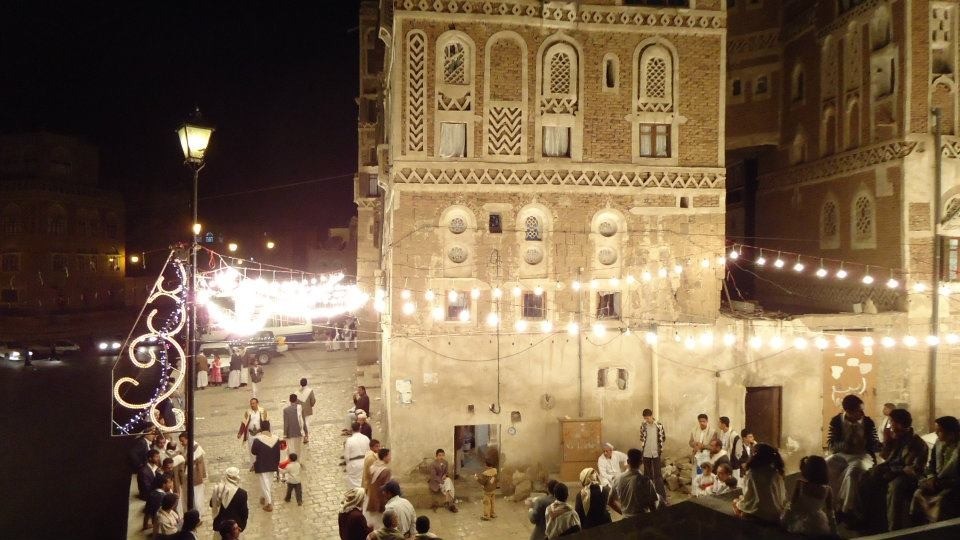
The old quarter of Sana’a at night, where Imanaka lived.
Q: Have you been in a situation where you felt you were in danger?
Sudan is politically unstable, so shootings do happen, but the time I really felt that my life was in danger was when a fire broke out in the Khartoum office. The office was a room in the top of the building on the ninth floor, and I remember smelling something odd and opening the door, and smoke started filling the room. I grabbed my valuables, covered my mouth with our prayer mat and tried to escape to the roof, but the door upstairs was locked. I forced it open, but once I was out plenty of smoke was still spilling out. I wasn’t sure where the actual fire was and really thought that the entire building would burn down. I was alone in the office at the time, so I called a bunch of people to try to explain what was happening, but I was so panicked that the only thing I could say was “fire!!”.
In the end, the fire was started by equipment underground that had short-circuited and didn’t spread very much so everything was fine, but in the moment, I really thought that I might die.
Personally, the Middle East is much safer than people make it out to be. Heinous crimes like robbery and murder aren’t common, and I haven’t had any experience with it. I feel quite safe walking around.
Q: Last of all, what is something that you want to achieve in your life?
I love both Yemen and Sudan, and I feel satisfied just carrying out activities there.
Even so, I do feel a bias for Yemen. I was treated so kindly by the people, and have a trove of memories. It’s where I felt most fulfilled in life.
Now, because of the war, it’s difficult to live your average life in Yemen, and there are many people who are just trying to get out. I really want to help the people struggling there in any way I can. Even if it’s not to do with international cooperation, it’s an incredibly special place to me and I am always thinking of them.
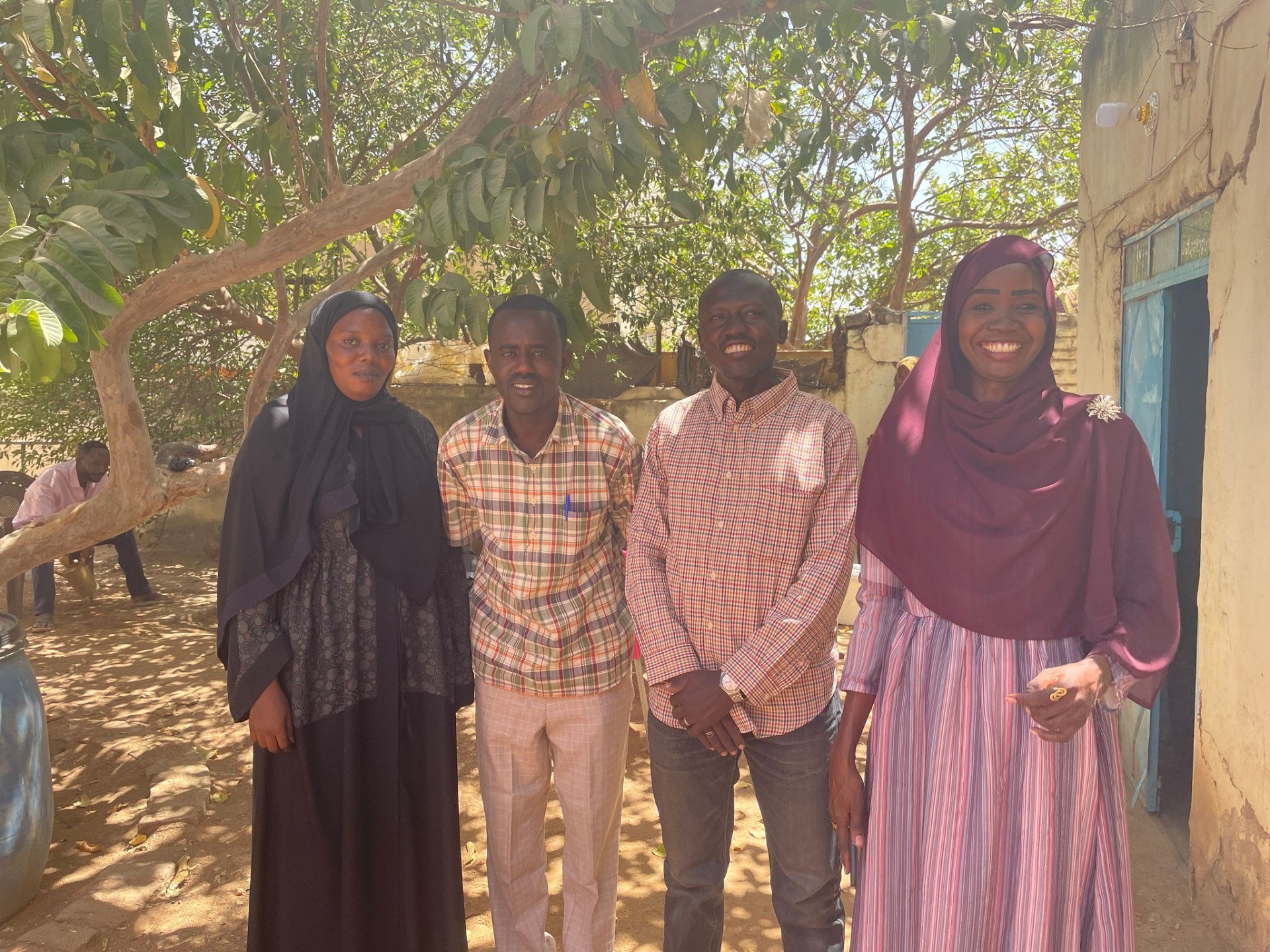
The staff at the Kadugli office are kind yet determined.
What I’ve learned (Sano)
His love for Yemen and Sudan was clear to see, but what stood out to me was his drive to help people more closely and give anything he wanted to do a go.
To try something new is easy to say but requires a great amount of bravery to actually do, but this kind of curiosity seems to be one of the things that drives Imanaka through life.
Personally, I was surprised that the public safety in the Middle East didn’t seem so bad. Just as Imanaka mentioned, I held the impression that the Middle East was a scary place, but this interview gave me good reason to change my mind.
I was thankful to gain a real insight into the challenges Imanaka faces in his work carrying out JVC’s activities as a local staff member. Difficult as it may be, I could tell from the animated way he spoke about it that it’s rewarding work for him.
Among Imanaka’s kindness and friendliness, you can feel his real determination to help people. Thank you for being so honest and sharing your experiences with us!
Share This: